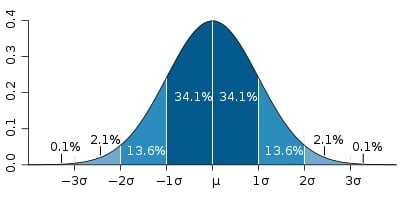I’ve taken some heat in the comment section for using yesterday’s post on “unbiblical” and a “higher view of scripture” as a thin foil for my own disregard of biblical standards. To the contrary, I was pointing to the use of the word unbiblical as a stand-in for a particularly thin hermeneutic. There are, of course, things that are unbiblical: child pornography and shampoo, for instance. Both are technically unbiblical since they are never mentioned; further, the first is morally at odds with the biblical narrative, while the second is not.
So, to repeat, “unbiblical” is not a euphemism on its face; it is a euphemism when used as a stand in for a hermeneutical argument.
Today, I thought we’d poke at the liberals a bit, since the conservatives around here seem to be on the defensive. The euphemism of today is,
fundamentalist.
Again, I’m not implying that fundamentalists do not exist. They do. But liberals and progressives often use “fundamentalist” as a cheap and easy stand-in for someone who has a more conservative biblical hermeneutic.
Fundamentalism as a concept may have started centuries ago, but it was only named as such at the end of the 19th century, at the seminary of my PhD studies. By 1910, five “fundamentals” had been named:
- The inspiration of the Bible by the Holy Spirit and the inerrancy of Scripture as a result of this.
- The virgin birth of Christ.
- The belief that Christ’s death was the atonement for sin.
- The bodily resurrection of Christ.
- The historical reality of Christ’s miracles.
These days, some claim that heritage in Christianity, and there are even denominations with “fundamentalist” in their names. And then you’ve got evangelicals like Dan Kimball announcing that they are fundamentalist, according to the original definition. Indeed, the American evangelicalism of the 1940s was an attempt to chart a third way between fundamentalism and liberalism (see George Marsden for the low down on that movement).
But we all know — even Dan Kimball knows — that’s not what’s meant by “fundamentalist” these days. Today it’s a cultural category, often equated with the “God Hates Fags” crazies and Bob Jones University.
All the more reason that liberals and progressives (including some of the commenters on this blog) sin when they refer to thoughtful, right-of-center evangelicals as fundamentalists. To over simplify, let’s think of Christian theology like a Bell Curve. Evangelicals and Progressives (including Progressive Evangelicals) make up the middle two standard deviations — you’ve got to go out to the 13.6% on the edges to find the fundamentalists and the liberals.
 In fact, these boundary categories are what Phyllis Tickle talks about as the 10% of each quadrant that will reify in the corners and not join the Great Emergence in the center.
In fact, these boundary categories are what Phyllis Tickle talks about as the 10% of each quadrant that will reify in the corners and not join the Great Emergence in the center.
QED, Evangelicals are not fundamentalists, so let’s stop calling them that.

